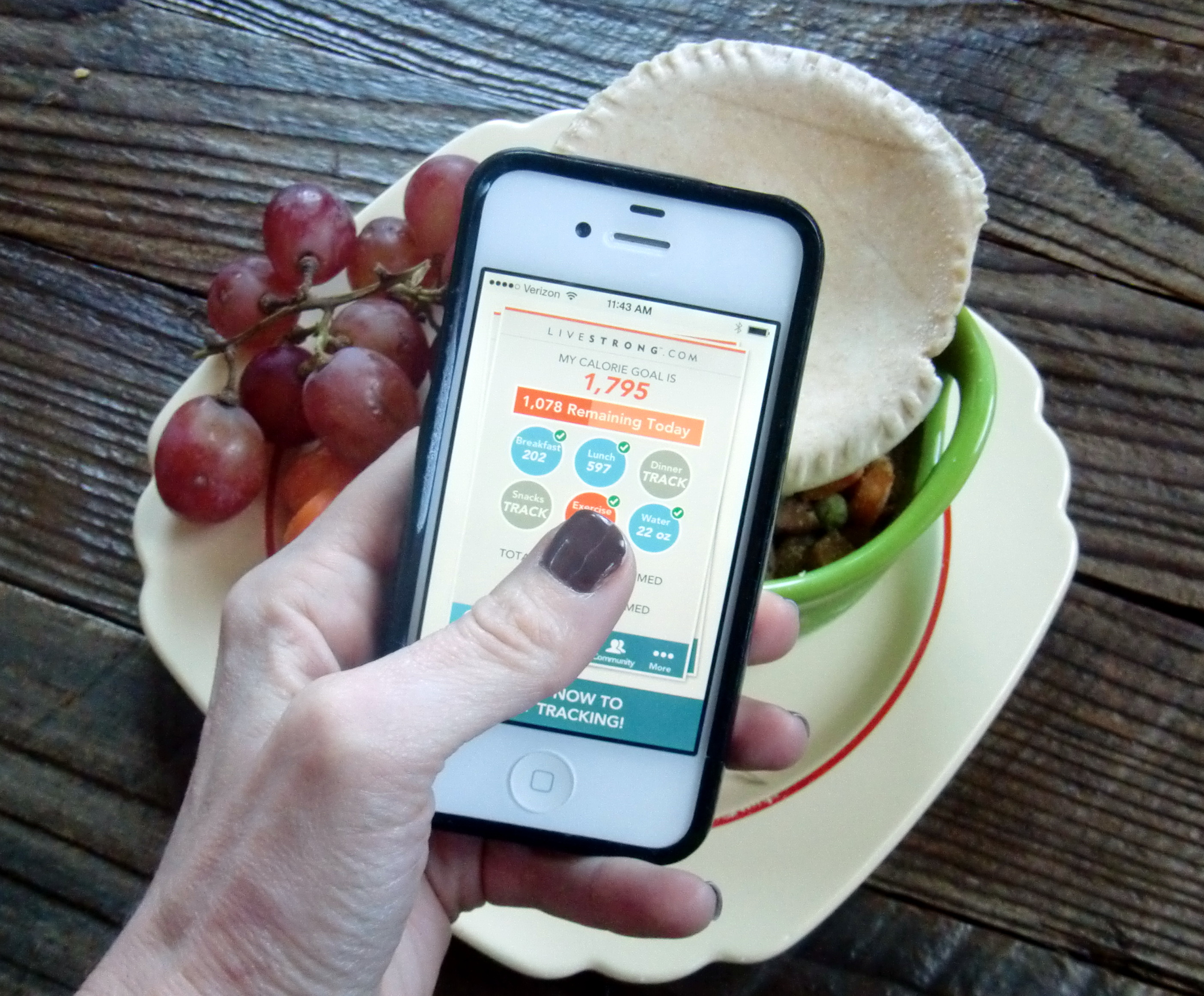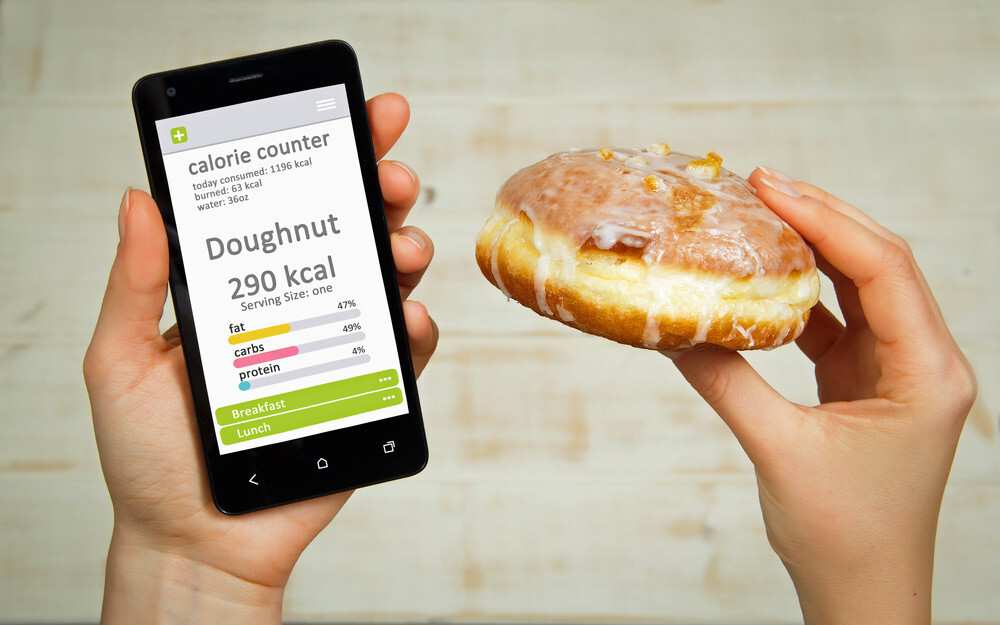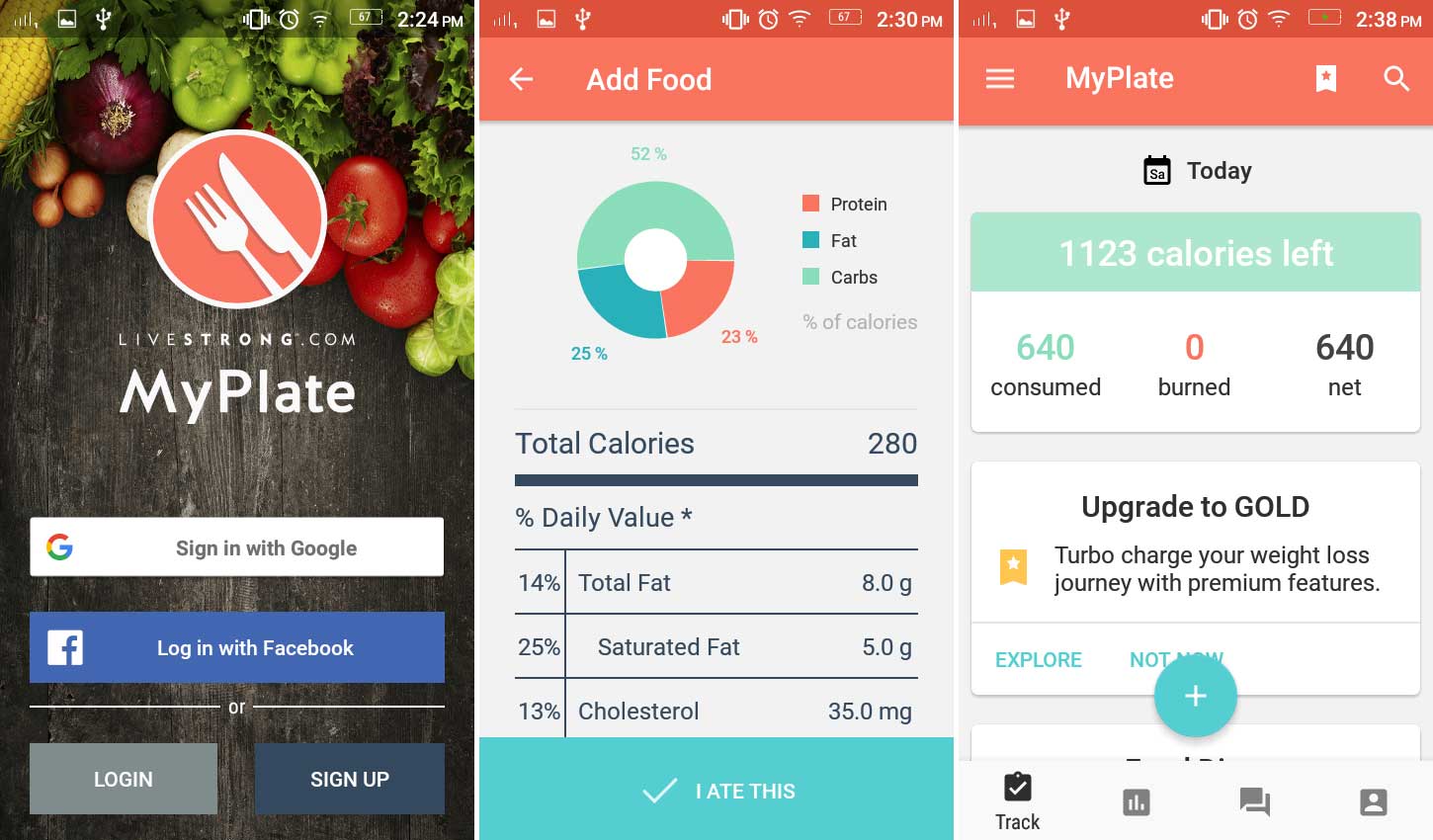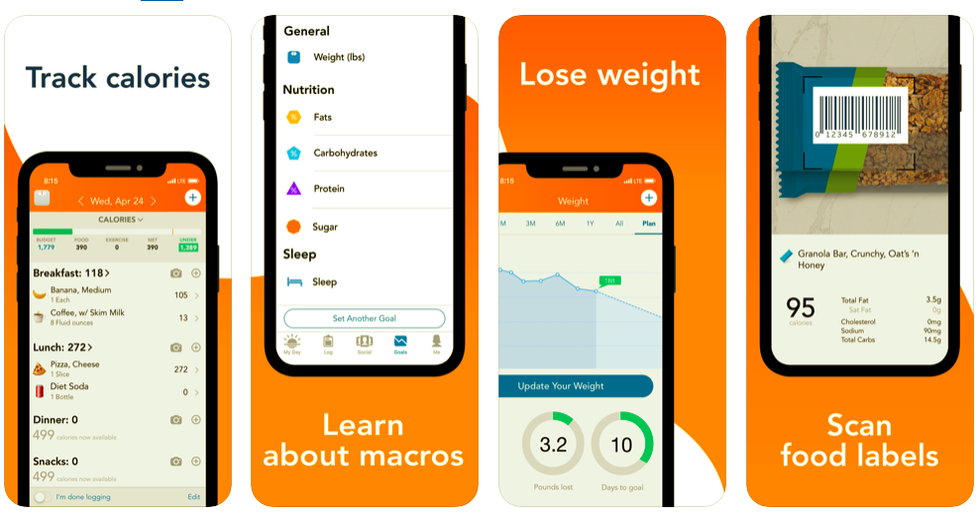Calorie counter apps have emerged as a cornerstone of weight management, empowering individuals to take control of their calorie intake and embark on a journey toward a healthier lifestyle. These apps offer a multitude of features and benefits, making them an indispensable tool for those seeking to achieve their fitness goals.
From tracking calorie intake to identifying dietary patterns, calorie counter apps provide a comprehensive solution for weight management. They offer personalized insights, tailored recommendations, and support systems that empower users to make informed choices and achieve lasting results.
Popular Calorie Counter Apps

With the increasing awareness of healthy eating and weight management, calorie counter apps have become indispensable tools for many individuals. These apps offer a convenient way to track calorie intake, monitor nutritional values, and stay on top of fitness goals.
There are numerous calorie counter apps available in the market, each with its unique features and benefits. Some of the most popular options include:
MyFitnessPal
- Comprehensive food database with over 11 million items
- Barcode scanner for easy food logging
- Personalized calorie and macronutrient goals
- Community support and recipe sharing
Lose It!
- Snap It food recognition technology for quick logging
- Detailed nutritional information, including micronutrients
- Challenges and rewards to keep users motivated
- Integration with fitness trackers and other health apps
Cronometer
- Extensive nutrient database with over 80 micronutrients
- Customizable reports and charts for detailed analysis
- Supports intermittent fasting and other specialized diets
- Advanced features for athletes and health professionals
Fooducate
- Focuses on food quality and nutrient density
- Provides nutrition grades and dietary recommendations
- Offers recipes and meal plans tailored to specific dietary needs
- Educational content on nutrition and healthy eating
Yazio
- User-friendly interface with intuitive design
- Customizable macros and calorie goals
- Integration with popular fitness apps and devices
- Large recipe library with a variety of meal options
The choice of the best calorie counter app depends on individual needs and preferences. Consider factors such as the app’s food database, ease of use, additional features, and compatibility with other devices and apps.
Benefits of Using Calorie Counter Apps
Calorie counter apps offer numerous advantages for individuals seeking to manage their weight effectively. These apps provide users with the tools and insights necessary to track their calorie intake, identify dietary patterns, and make informed choices that support their weight management goals.
Tracking Calorie Intake
Calorie counter apps allow users to meticulously track the calories consumed throughout the day. By inputting the foods and beverages they consume, users can gain a clear understanding of their daily calorie intake. This information empowers individuals to make adjustments to their diet, ensuring they consume an appropriate number of calories to achieve their weight loss or maintenance goals.
Identifying Dietary Patterns, Calorie counter apps
Over time, calorie counter apps can help users identify patterns in their eating habits. By reviewing their food logs, individuals can pinpoint areas where they may be overconsuming calories or making unhealthy choices. This awareness enables them to make informed decisions about their diet, such as reducing portion sizes, choosing nutrient-rich foods, or limiting processed snacks.
Making Healthier Choices
Calorie counter apps often provide access to extensive food databases that include nutritional information for a wide variety of foods. This feature empowers users to make healthier choices by comparing the calorie content and nutritional value of different foods. Additionally, many apps offer recipe suggestions and meal plans that align with specific dietary goals, further supporting users in making informed decisions about their nutrition.
Features to Consider When Choosing a Calorie Counter App

Choosing the right calorie counter app can help you stay on track with your weight loss or weight management goals. Here are some key features to consider when selecting an app:
Accuracy
The accuracy of a calorie counter app is crucial. You want to make sure that the app is tracking your calories accurately so that you can make informed decisions about your diet.
User Interface
The user interface of a calorie counter app should be easy to use and navigate. You should be able to easily find the information you need and log your food quickly and easily.
Food Database
The food database of a calorie counter app should be comprehensive and up-to-date. You want to make sure that the app includes the foods you eat so that you can accurately track your calories.
Integration with Other Health Apps
If you use other health apps, such as a fitness tracker or a sleep tracker, you may want to consider choosing a calorie counter app that integrates with those apps. This will allow you to track all of your health data in one place.
Limitations and Challenges of Calorie Counter Apps

Calorie counter apps can be valuable tools for weight management, but they also have limitations and challenges. Understanding these limitations is crucial to use these apps effectively and avoid potential pitfalls.
One of the main limitations of calorie counter apps is their accuracy. Tracking calorie intake manually can be challenging, and apps rely on user input, which can be subjective and prone to error. Factors like food portion sizes, cooking methods, and recipe variations can impact calorie counts, leading to inaccuracies.
Reliability of Calorie Data
- Calorie databases used by apps may not always be up-to-date or comprehensive, especially for international cuisines or specific dietary needs.
- The accuracy of calorie information provided by food manufacturers can also vary, and apps may not always have access to the most accurate data.
Individual Variability
- Calorie needs and metabolism vary significantly from person to person, and calorie counter apps may not always provide personalized recommendations.
- Factors like age, gender, activity level, and body composition can influence calorie requirements, and apps may not account for these individual differences.
Psychological Impact
- Excessive focus on calorie counting can lead to disordered eating patterns or an unhealthy relationship with food.
- Apps that provide detailed nutritional information may trigger anxiety or obsession over food choices.
Importance of Professional Guidance
It’s important to note that calorie counter apps are not a substitute for professional medical advice. Consulting with a healthcare professional or registered dietitian is essential for personalized guidance, tailored calorie recommendations, and support.
Alternatives to Calorie Counter Apps

Calorie counter apps are not the only option for tracking calorie intake and managing weight. Several alternative methods can provide similar benefits, each with its advantages and disadvantages.
Food Diaries
Food diaries involve manually recording everything you eat and drink throughout the day. This method is straightforward and allows for detailed tracking of calorie intake. However, it can be time-consuming and requires self-discipline.
Meal Planning Apps
Meal planning apps provide pre-designed meal plans or recipes that can help users track calories and manage their weight. These apps offer convenience and structure but may not be as flexible as calorie counter apps.
Working with a Registered Dietitian
Consulting with a registered dietitian provides personalized guidance and support in managing weight. Dietitians can assess individual needs, create tailored meal plans, and offer professional advice on nutrition and healthy eating habits.
Final Summary: Calorie Counter Apps
In conclusion, calorie counter apps have revolutionized the way we approach weight management. By providing accurate calorie tracking, personalized recommendations, and a supportive community, these apps empower individuals to take control of their health and achieve their fitness goals. Whether you’re just starting your weight loss journey or looking to refine your existing routine, a calorie counter app can be an invaluable tool on your path to success.
Key Questions Answered
What are the most popular calorie counter apps?
Some of the most popular calorie counter apps include MyFitnessPal, Lose It!, and Cronometer.
How do calorie counter apps help with weight management?
Calorie counter apps help with weight management by providing accurate calorie tracking, personalized recommendations, and a supportive community.
What factors should I consider when choosing a calorie counter app?
When choosing a calorie counter app, you should consider factors such as accuracy, user interface, food database, and integration with other health apps.
How can I use calorie counter apps effectively?
To use calorie counter apps effectively, you should set realistic goals, log food accurately, and make gradual changes to your eating habits.
What are the limitations of calorie counter apps?
Calorie counter apps can be limited by their accuracy, the completeness of their food databases, and the user’s ability to log food accurately.